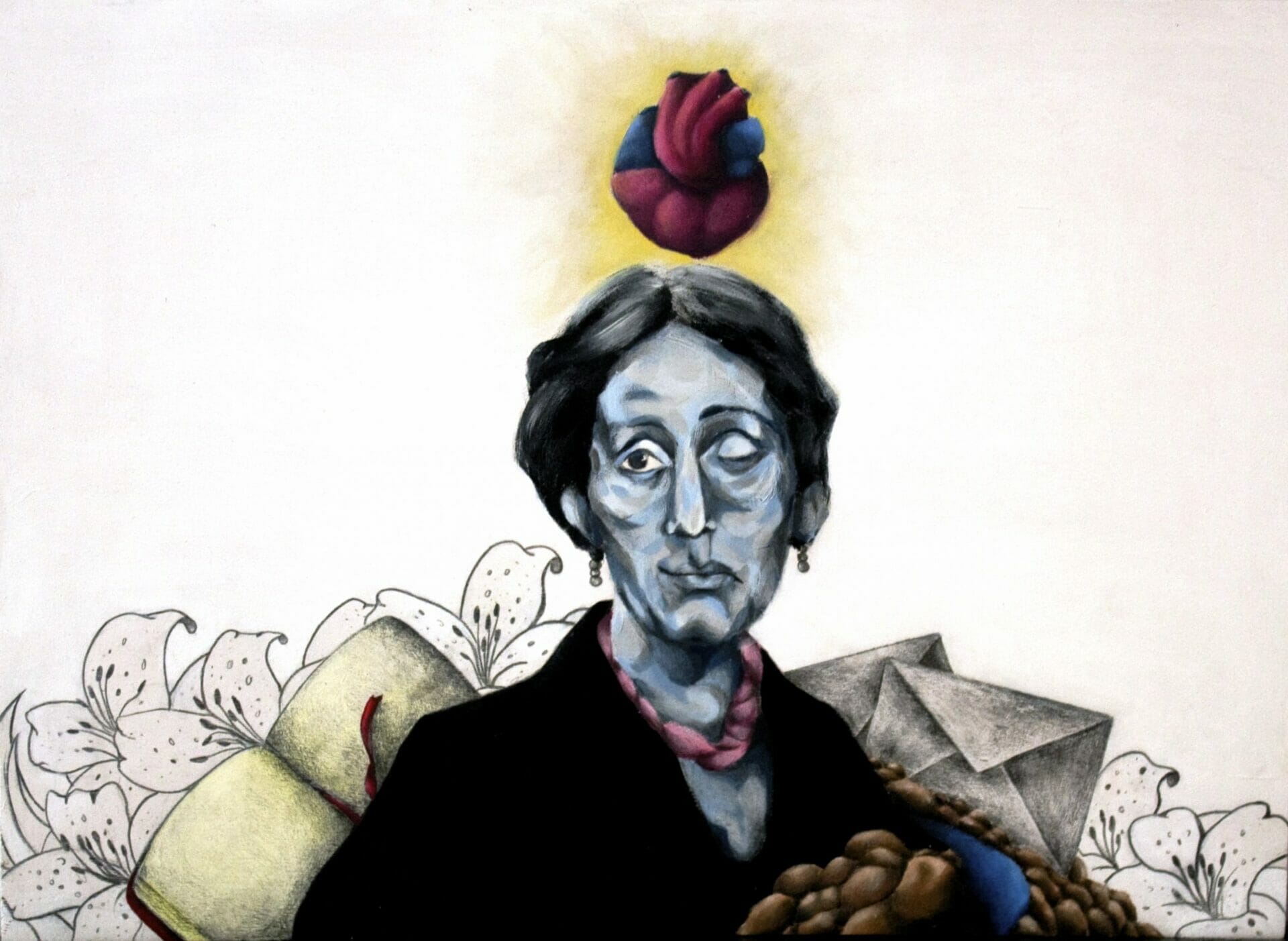
Ian McEwan's Atonement | Redemption through writing
Author
Year
Format
How can a novelist achieve atonement when, with her absolute power of deciding outcomes, she is also God? There is no one, no entity or higher form that she can appeal to, or be reconciled with, or that can forgive her. There is nothing outside her about her. In her imagination she has set the limits and the terms. No atonement for God, or novelists, even if they are atheists.
― Ian McEwan, Atonement
This quote is one of the focal points of Ian McEwan’s book, Atonement, written in 2001. The novel tells a story in which a tragic misunderstanding will upset the life of an entire family. The main themes are reality versus fiction, awareness and innocence, social classes, guilt, and the power of writing to heal wounds. The novel was featured in many rankings of the best books of all time and was a finalist in 2001 for the Pulitzer Prize for fiction.
A devastating misinterpretation
In England, in the summer of 1935, thirteen-year-old Briony, the book’s protagonist, is a little girl with a vivid imagination and an obvious writing talent. One afternoon like any other she secretly witnesses an argument between her older sister Cecilia and Robbie, the son of her maid. The two who are secretly in love have a complicated relationship, both try to keep their feelings hidden. Briony, misinterpreting this conflictual relationship, becomes convinced that Robbie is behaving aggressively towards her sister. Her fantasies will have terrible consequences when she accuses Robbie of raping her young cousin. However, years after her, an adult Briony, having realized her mistakes, will try to atone for her guilt for ruining Cecilia and Robbie’s lives.
The healing power of writing
Atonement addresses various themes, starting with that of the power of imagination. Briony, one of the three main characters, presents a complex psychological structure. Briony is a little girl who seeks attention from her family, she would like to be part of the adult world, but she is still in a pre-adolescent age. She likes to fantasize about the world around her and she has a strong passion for writing. However, she still cannot distinguish what is real and what is imaginary, she tends to mix the two, to the point of accusing Robbie of having committed a terrible crime. This will lead her to carry the weight of serious guilt and her attempt to redeem herself.
Another fundamental theme is atonement: Briony attempts to redeem herself through writing. In real life, she could not make up for her mistakes, so she tried to use the intrinsic ability of writing to manipulate a pre-existing reality and change what was not possible in the real world. This was Briony’s only chance to move forward, and not be trapped by her regrets. Through her character, McEwan claims the capacity for literary creation. The author, just like Briony, has the power to decide the fate of his characters.
Two lovers divided by a lie and social class
The other two crucial characters are Cecilia and Robbie. Cecilia belongs to the Tallis family, the upper middle class. In the book’s first part, Cecilia is a young woman who has just finished college. She is aware of her social status and tries to appear sophisticated, slightly arrogant, and overly dramatic. However, in the narrative, she faces a radical change. She becomes a nurse after her separation from Robbie and the outbreak of the war. She dedicates her time to others, leaving her selfishness and pride behind.
Robbie is the son of the Tallis’ maid. Initially, he is a young man full of life, thrilled to start his medical studies. He grew up together with Cecilia, but he didn’t realize that his feelings towards the girl had grown over the years until he fell passionately in love with her. After being imprisoned and then subsequently released because he enlisted for the war, he faces a transformation. First imprisonment, then the horrors of war break his spirit. He is no longer a man full of energy, ready to face the world so he can be with the woman he loves. Robbie is desolate, traumatized, and hopeless.
Therefore, the book explores the different social classes in England in the first decades of the twentieth century. Robbie and Cecilia, before being separated by fate, are also separated by birth. They belong to two different social castes. The social gap that divides them is evident above all in the eyes of Cecilia’s mother. She does not approve of her husband’s decision to finance Robbie’s medical studies, she thinks it’s unneeded. Even the two lovers are aware of their social distance, however, their love is stronger and prevails over reason.
A peculiar structure
Atonement has a particular structure, the novel is divided into three parts, plus the epilogue. The first part, set in the English countryside of 1935, tells of a single morning experienced through the eyes of the main protagonists. The point of view constantly changes to show the reader how individual episodes can have different interpretations, depending on who witnessed them. The second part set four years later, during the Second World War, in which Robbie fights at the front, is narrated by the young man himself. The third told by a guilt-ridden Briony, describes her days as a trainee nurse in London. Finally, in the last part, set in 1999, Briony – now an elderly writer – takes the floor and leads us towards the epilogue of the story.
The distinctive feature of the novel is precisely the fact that at the beginning there is an external omniscient narrator and at the end, it changes and transforms into a first-person narrator. Therefore there is a clear contrast wanted by the author, the first part of the book is entrusted to a reliable narrator, while the final part is narrated by a 77-year-old Briony who turns out to be an unreliable voice. She admits that she orchestrated a story different from reality to give a worthy ending to the people whose lives she ruined.
Narrative devices
Ian McEwan is one of the most relevant contemporary British literary scene authors. He is an eclectic writer, his works range from children’s literature to war novels, with a common theme: encounters between reality and fiction. Many literary movements, modernism, post-structuralism, and post-modernism strongly influence McEwan’s style. An author who had a great impact on the English writer is Virginia Woolf. In Atonement, McEwan often recurs in the stream of consciousness, a technique widely used by Woolf. Briony uses it to describe the meeting between Robbie and Cecilia. A stylistic element that characterizes the novel is the prevalence of monologue over dialogue. The characters express their feelings, conflicts, and emotions through internal monologue.
However, the last part of the novel is highly inspired by postmodernism. In the epilogue the deconstruction of the story leaves the reader taken aback, therefore he must reconstruct everything he has just read. The author uses a metanarrative technique, a method employed by writers to describe a self-reflexive narrative. The ending is written in the form of a biographical note by Briony as if she were writing a sort of journal. By using this expedient, McEwan plays with the reader and with the idea of storytelling. The author wants the audience to believe that parts one, two, and three of the book were also written by Briony.
A fair adaptation
Atonement was adapted into a successful film in 2007, directed by Joe Wright. The main characters are played by Keira Knightley, James McAvoy, Saoirse Ronan, and Benedict Cumberbatch. The movie opened the 64th Venice International Film Festival garnering widespread plaudits. Atonement is considered one of the most relevant movies of 2007. It won many awards including the Golden Globe for Best Motion Picture – Drama Film and an Academy Award for Best Original Score by the Italian composer Dario Marianelli. The movie is very faithful to the book, except for some cuts made for reasons of length, nevertheless, it returns the same intensity and capacity of capturing the viewer’s attention and surprising him.
Tag
Buy a ☕ for Hypercritic









